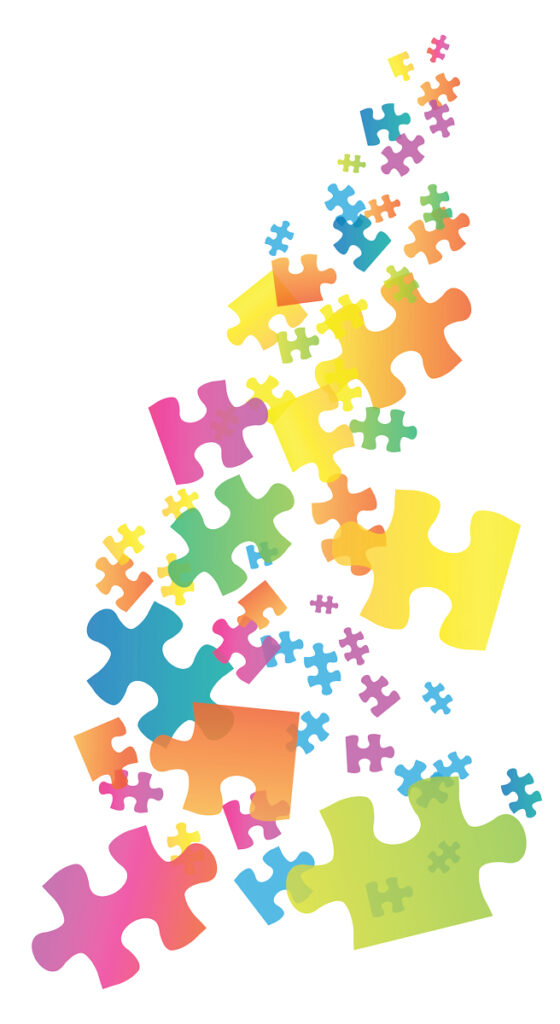Puzzle Power
By Avery Walker

Dating all the way back to the 18th century, jigsaw puzzles have been a source of entertainment for people of all ages and from all walks of life. From baby’s first barn animal wooden puzzle to advanced puzzles with thousands of pieces, puzzles are a versatile and beloved pastime. Not only are puzzles fun, but they also have a powerful impact on our brains.
When you do a puzzle, amazing things start to happen inside your brain. Puzzles, like dreaming and meditation, are one of the rare activities that activate both sides of your brain. Engaging the problem-solving, methodical, left hemisphere and the creative, intuitive thinking of the right hemisphere, puzzles require complete brain engagement, and can be extremely beneficial for improving and maintaining cognitive function. Activating this “Alpha state” of mind can boost your mood, increase your overall creativity, and reduce stress.
Meanwhile, in the occipital cortex, your brain is processing each tiny piece of the puzzle that your eyes see. Using spatial reasoning to determine where the pieces might fit in, and short term memory to recall the information you have already taken in regarding the overall image and pieces you have already laid, your brain kicks into overdrive. Improving spatial cognition can have long-term benefits for both children and aging adults. In fact, studies suggest that regularly working puzzles can lead to greater independence in later life.
If, like me, you struggle with ADHD or other factors that cause a dopamine craving in the brain, it is easy to rely on funny videos, caffeine, or other habits to boost your mental state. But did you know that puzzles are a fantastic alternative source of dopamine? Each time a piece fits perfectly into place, or you find that edge piece you have been searching for, your brain releases this mood-boosting neurotransmitter and encourages you to keep going. Working on a puzzle for a few minutes before work or a difficult task can shift your brain into high gear, promoting a state of productivity and mental drive.
Puzzles can be an important part of a child’s learning process, especially if introduced at an early age. Young brains are quickly developing, and puzzles can promote vital skills such as visual perception, shape and pattern recognition, and color recognition. Fine motor skills, finger strength, and hand-eye coordination are improved when working puzzles. Combined with the cognitive benefits of puzzles, these skills can facilitate early reading and writing ability in preschool age children. Puzzles can also contribute to healthy emotional development in children (and adults) by promoting patience, self-control, perseverance, and self-confidence. Puzzles are often used in occupational therapy for patients of all ages who are recovering from brain injuries or other conditions that impair coordination or control of the hands and fingers.
If done with a friend or two, a puzzle can forge interpersonal relationships by encouraging teamwork, group problem solving, and a shared sense of accomplishment when the puzzle is completed. Doing a puzzle is a great way to spend quality time with loved ones and requires little to no financial investment. Puzzles are easy to find at yard sales, thrift stores, or even local libraries. If you want to spend a little more, specialty puzzles can make fantastic gifts or even souvenirs. Many retailers and websites even offer customizable puzzles that can be made from photos or personal artwork.
Though puzzles are certainly not a fix-all, they might just be the missing piece in the overall picture of a healthy, happy lifestyle.

